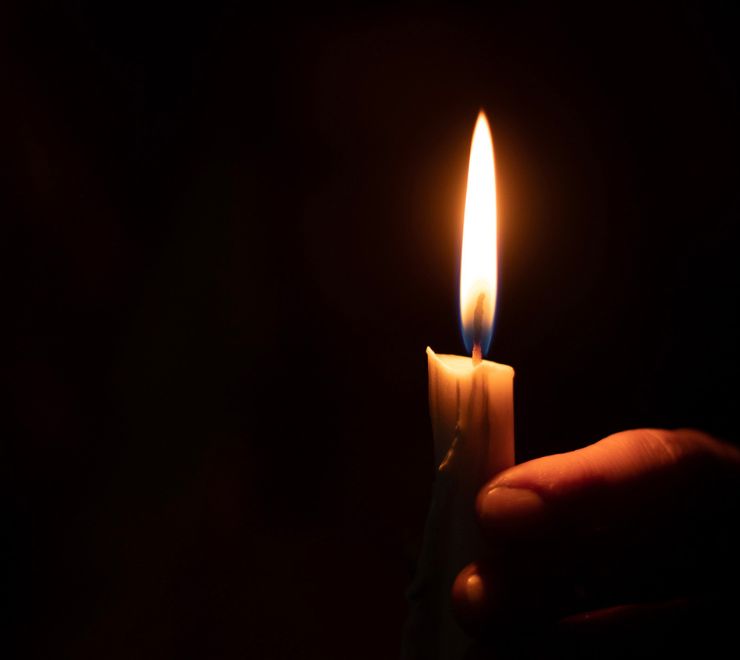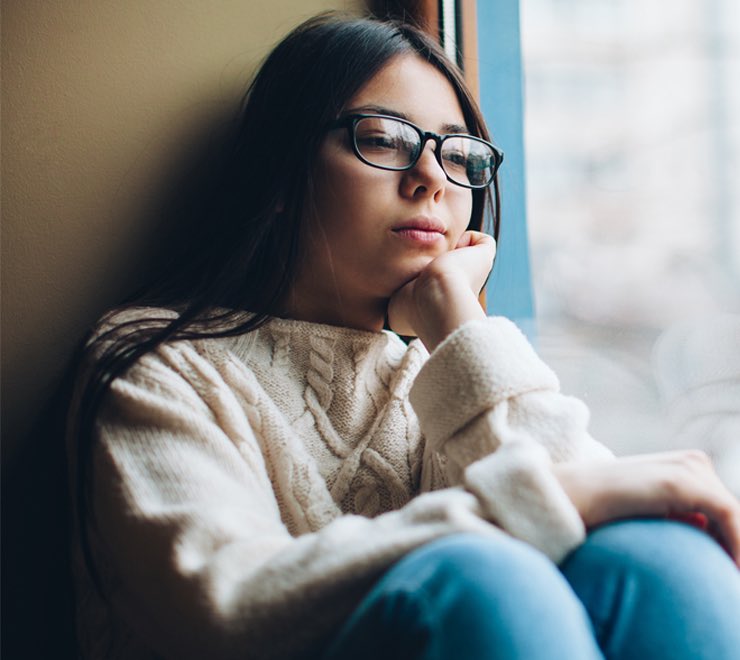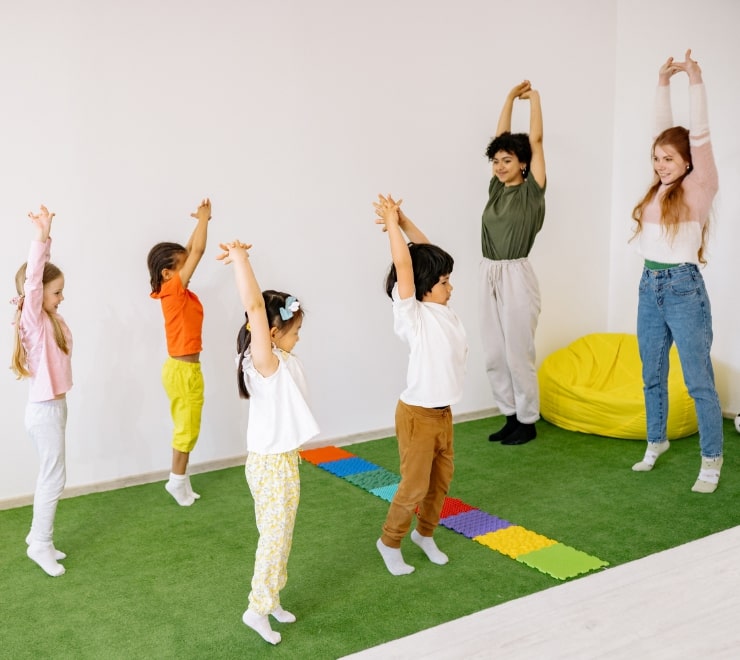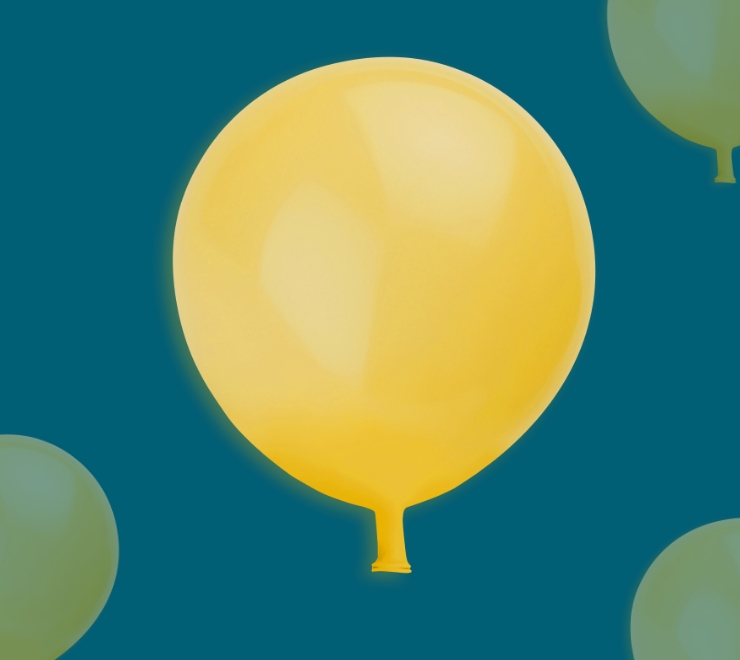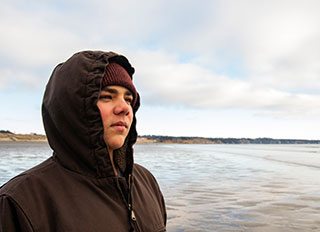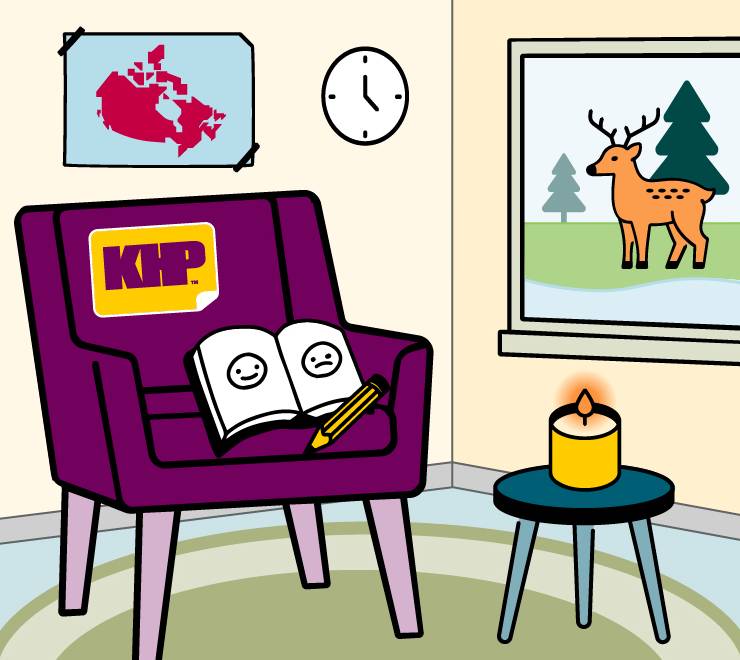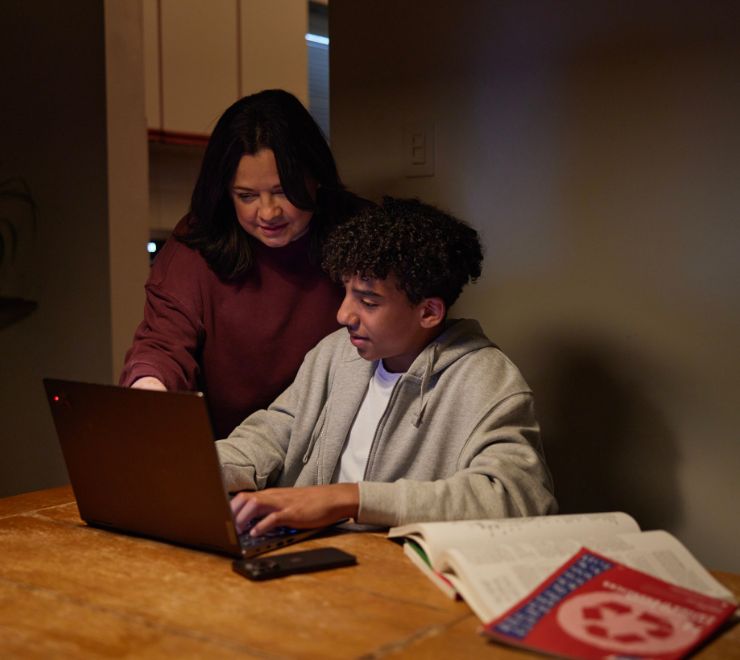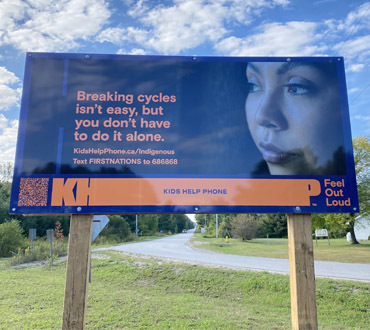Causes, signs and ways to cope with the seven most common anxiety disorders.
Social anxiety disorder
Social anxiety disorder makes you feel extremely uncomfortable around groups of people, like in a classroom or at a party. Social anxiety is a lot more extreme than shyness because it stops you from doing things you may enjoy. It can make you avoid places or settings where you may have to interact with others.
Causes
Social anxiety can come from a fear of being watched, judged or criticized by others. No one knows for sure why some people struggle with social anxiety and others don’t. It can be caused by:
- Genetics: people in your family may experience social anxiety, too.
- Past experience: social anxiety may develop after a stressful or embarrassing experience or over time.
Signs
Signs of social anxiety disorder include:
- racing heart or a “skipping” heartbeat
- trembling
- sinking feeling
- twitching or tense muscles
- blushing
- dizziness
- stomach ache
- sweating
If you’re struggling at school, skipping classes, having trouble making/keeping friends or are worried that you’re using alcohol and/or drugs to cope with your feelings, consider talking to someone you trust. Kids Help Phone is available 24/7 at 1-800-668-6868.
How to cope
Here are some tips that may help with social anxiety disorder:
- Read up: get more information on social anxiety. Understanding it can help you find ways to manage it.
- Make a list: write down the “triggers” that affect your anxiety.
- Give yourself credit: if you do something that makes you nervous or anxious, congratulate yourself on trying. Making the effort to conquer your fears is very brave.
- Talk about it: talking gives you a chance to work on an issue with someone else, rather than taking it on by yourself.
Imagine this scenario
Let’s say you blushed when you asked a question in class. How bad would that be? What may happen as a result? How would you feel if you saw someone else make the same “mistake” as you? If they blushed, would you point and laugh? Would you think about it for the rest of the day or forget about it?
Remind yourself of this scenario when you’re feeling anxious. Chances are the embarrassment that feels like a huge deal to you will barely be noticed by others.
Remember, social anxiety disorder is treatable. You don’t have to face this forever. You can call Kids Help Phone at 1-800-668-6868 if you need to talk.
Panic disorder
Panic disorder is when you experience frequent panic attacks. Panic attacks can be triggered by stressful events, but sometimes they just happen.
Causes
Panic attacks are often related to specific phobias. They can also be caused by:
- Genetics: people in your family may experience panic attacks, too.
- Past experience: panic attacks may start after a stressful or scary experience.
How to cope
Here are some tips that may help with panic disorder:
- Visit a doctor: a doctor can rule out any other conditions that could be affecting how you feel or refer you to a therapist who can help you. (If you have panic attacks, it’s important to tell your doctor about them.)
- Breathe: learning how to breathe through a panic attack can really help! Breathe in and out to the count of three. Try to count slowly. If you can, pause between breaths. It’ll go like this: breathe in (1, 2, 3), pause, breathe out (1, 2, 3), pause, breathe in (1, 2, 3) and so on.
- Relax your muscles: tension and release exercises can help you relax your entire body.
- Take your medication: your doctor may prescribe medication to help you stay calm. Medication isn’t right for everyone, but if it’s been prescribed to you, it’s important to take it.
Specific phobia disorder
Specific phobia disorder is an overwhelming fear of a particular situation or thing. The fear can make you avoid certain places or activities. When you’re faced with the thing you’re afraid of, it could trigger a panic attack.
Some common phobias include:
- fear of small, tight spaces or wide open spaces
- fear of bridges, tunnels or elevators
- fear of flying
- fear of needles
- fear of blood
- fear of certain types of animals or insects like spiders or bats
- fear of choking or vomiting
- fear of loud noises
Causes
It’s hard to say what causes specific phobia disorder. Research shows that there are many different factors including:
- Genetics: phobias can run in families.
- Environment: exposure to trauma or a frightening event can be a trigger. For example, almost drowning could create a phobia of water.
Signs
Some people may try not to think about their phobia or may avoid doing things that expose them to it. Someone who’s afraid of heights may avoid tall buildings or roller-coasters.
The fearful feelings are often accompanied by physical sensations, like:
- a fast heartbeat
- nausea
- hot and cold sensations
- shaking or trembling
- light-headedness
- sweating
- panic attacks
How to cope
Here are some ways to cope with specific phobia disorder:
- Think positive: learning how to talk to yourself in a positive way can help you work through a phobia, especially if you experience panic attacks. Remind yourself that you won’t die from a panic attack or from any other symptom associated with your phobia.
- Breathe: breathe in and out to the count of three. Count as slowly as possible.
- Face your fears: making yourself experience what you’re afraid of can help you realize that it isn’t that scary after all. This is called “exposure.” It should be done in a safe environment with someone you trust. Don’t do this if you experience extreme symptoms or if your phobia triggers panic attacks.
- Visit a doctor: a doctor can help you figure out ways to cope with your phobia or refer you to a counsellor who can help.
- Take your medication: your doctor may prescribe medication to help you, depending on how much your phobia is holding you back. Medication isn’t right for everyone, but if it’s been prescribed to you, it’s important to take it.
Separation anxiety
Separation anxiety can happen when you’re separated from a parent, caregiver, other trusted adult or home. It’s most common in young children, although adolescents and adults may also experience separation anxiety. Try to be sensitive if someone you care about has separation anxiety disorder.
Signs
Young people who have separation anxiety disorder usually show their anxiety in different ways. Signs may include:
- crying
- nightmares
- difficulty sleeping, especially without parents/caregiver
- upset stomach or stomach aches
- headaches
- refusing to go to school
How to cope
Here are some tips to help you cope with separation anxiety:
- Comfort: choose a stuffed animal, doll or something else that reminds you of your parent or caregiver and keep it with you when you feel anxious.
- Reassure yourself: tell yourself that your parent or caregiver will be back and that everything will be OK.
- Breathe: do some deep breathing exercises to help you relax.
- Distract yourself: try a board game, a sport, a movie or play with a pet.
- Talk about it: remind yourself that it’s OK to feel scared. Talking to someone you trust can help. Kids Help Phone counsellors are available 24/7 at 1-800-668-6868.
Generalized anxiety disorder (GAD)
Generalized anxiety disorder (GAD) is when someone worries a lot about everyday situations like school, work, relationships or health. The worrying is uncontrollable and usually unrealistic. Other people experiencing similar situations won’t feel the same level of worry and fear.
Causes
There are different reasons why people experience GAD:
- Genetics: people in your family may experience it, too.
- Environment: stressful situations like divorce, a breakup, bullying or the death of a friend or family member can contribute to GAD.
Signs
Worrying is only part of GAD. People who have it experience at least three other symptoms, such as:
- feeling restless, tense or angry
- feeling tired easily
- having difficulty concentrating
- having trouble sleeping
- feeling like something bad is about to happen
- wanting to be perfect or being afraid to make a mistake
- wanting to be alone most of the time
- not wanting to hang out with people your own age
- physical signs like dry mouth, trembling, tense muscles, quickened heartbeat or sweating
If you’re experiencing any of these symptoms, talk to your doctor about how you’re feeling. Doctors usually don’t diagnose a person with GAD until they’ve experienced these symptoms almost every day, most of the day, for at least six months.
How to cope
Try these tips to cope with GAD:
- Take care of yourself: get regular exercise, eat well and try to get enough sleep at night.
- Take deep breaths: count to five as you breathe in and count to seven as you breathe out. Try to pause between breaths. Repeat for a few minutes.
- Talk about it: share your worries with a friend or safe adult.
- Go for a walk: walk somewhere peaceful and quiet if you can. Bring a friend if you like to walk at night.
- Visit a doctor: a doctor can help you understand what you’re experiencing and offer support, like finding a counsellor or trying medication.
Obsessive compulsive disorder (OCD)
Obsessive compulsive disorder (OCD) is an anxiety disorder that makes you constantly think about or obsess over something. The obsessive thoughts make you behave in certain ways to cope — these behaviours are called compulsions. Compulsions are repetitive — so much so that they’re sometimes called “rituals.” OCD can seem worse when a person is stressed out or unhappy. OCD is treatable, but reducing your symptoms can take time.
Causes
It’s not clear what causes OCD. Psychologists believe it has something to do with:
- Biology: different “circuitry” in the brain or brain chemicals like serotonin may contribute to OCD.
- Genetics: people in your family may experience OCD, too.
Signs
OCD doesn’t appear the same in everyone. It depends on what kinds of obsessions an individual is living with.
Common obsessions related to OCD include:
- fear of contamination (dirt, germs, chemicals, getting sick)
- fear for your own safety
- fear of illness
- fear of forbidden thoughts
Common compulsions that people use to help them deal with their obsessions are:
- repetitive washing/cleaning
- counting
- touching or repeating actions the same number of times
- ordering/arranging
- mental rituals
How to cope
There are different ways to treat OCD. Using a combination of the following can be the most effective:
- Therapy: a therapist can help you deal with your obsessions in ways other than your compulsions. If you’re not sure how to find a therapist, visit your doctor or call Kids Help Phone at 1-800-668-6868.
- Medication: doctors sometimes prescribe medication to help people deal with OCD.
- Support groups: you’re not alone. Talking to others who have OCD can be a good source of support. Your doctor or counsellor can put you in touch with support groups for people living with OCD.


